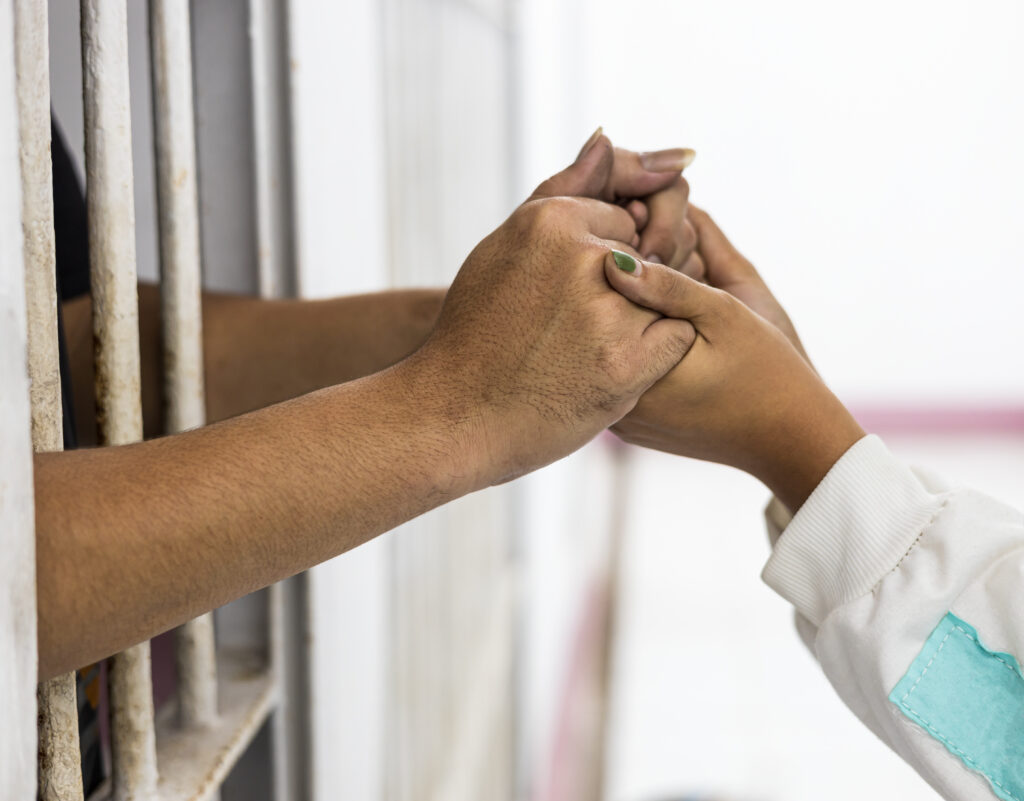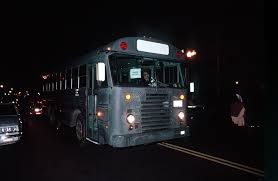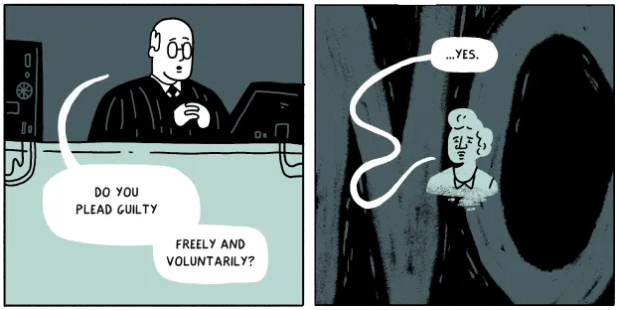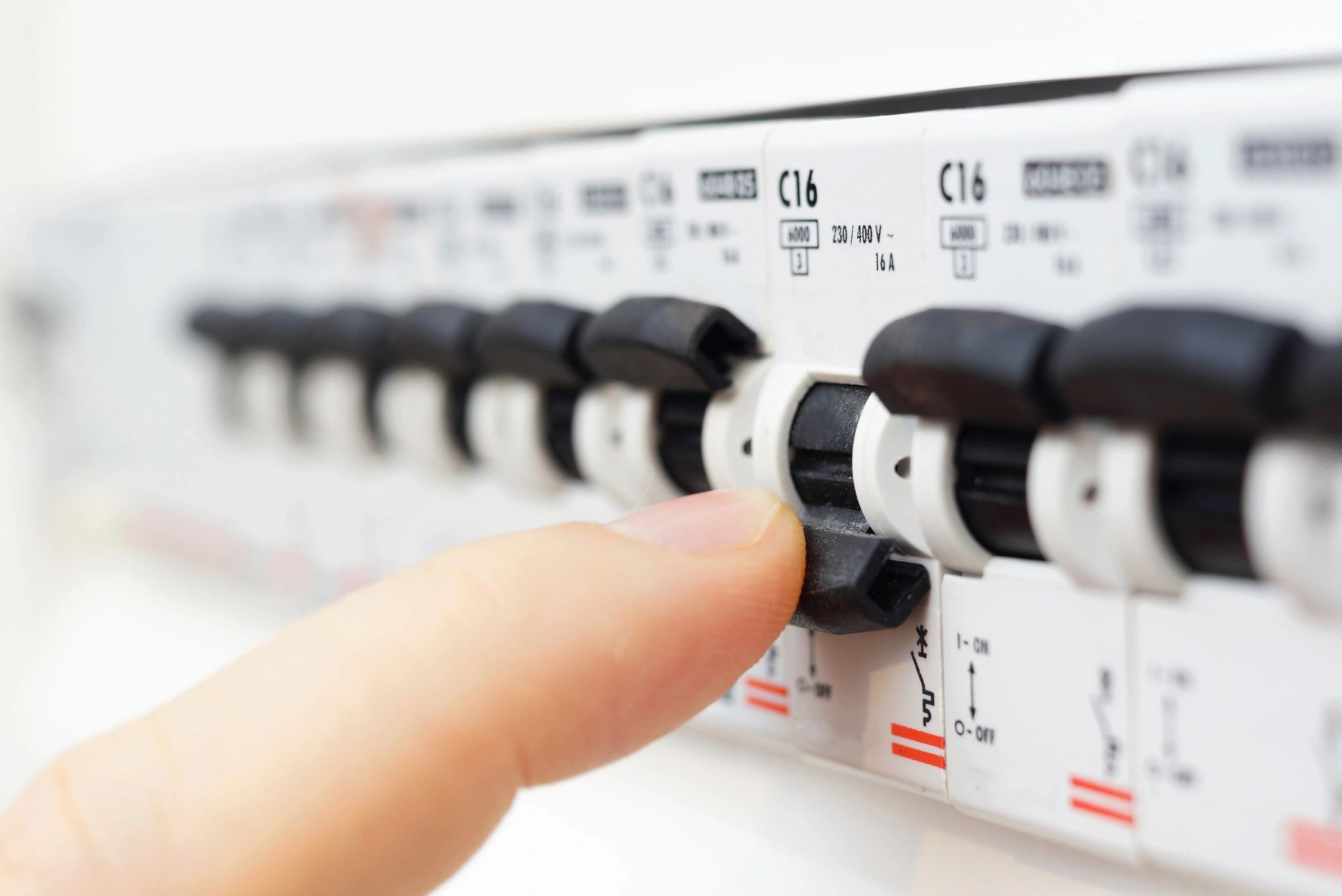
The families and friends of the accused face trials unique to their situation. The stigma of living with false charges or a wrongful conviction extends to those closest to the accused. They are constantly questioned for associating with “a criminal,” and must advocate for themselves and their loved one if they are to mitigate scrutiny. They may, to an extent, become the de-facto doctors, lawyers, counselors, and even whistle-blowers for their loved ones; as lack of services is a common thread when dealing with the criminal justice system. These trials compound in the case of a conviction.
The decision to stand by an incarcerated loved one often faces a lack of support from one’s own friends and family; regardless of the inmate’s charges, or their guilt or innocence. Work and school situations can become complicated, as a judgmental party in the wrong position of power could find reason to sabotage the career or education of a family member based on prejudice against the inmate. Thus loved ones are forced to tread lightly when it comes to mentioning the accused, or else effectively stand their ground when defending their decision to support him or her.
Few endure even to that point. Staying strong enough to support an accused loved one, while grieving the closeness that the State has robbed them of, is a lonely battle to fight. The constant strain, and lack of support, can sometimes lead a loved one to give up on the accused for the sake of their own mental health, or their own personal image.
Others still suffer from a lack of understanding about the inmate’s situation, and struggle to recognize trauma responses, which may cause distress, for what they are. How much easier is it to hang up on a frustrated inmate than to figure out what’s bothering them, or better, how to help? Indeed the system of incarceration itself is designed to make it easy to forget about inmates; to push them aside into the dark warehouse the State has prepared for them, and leave them quietly apart from society, out of sight, out of mind, and out of our lives.
For some, the choice is not even theirs to make. Minors, or loved ones who aren’t financially independent, have no means of contacting an incarcerated loved one unless they have the support of their caregivers. In cases where parties were specifically accused as part of a ploy to “get” the children, such as in a divorce, contact is practically impossible. What judge will recognize and enforce the parental rights of an inmate? What inmate has the means, financial or otherwise, to hire a civil lawyer to this end?
Likewise, elderly family members, or those with limited access to technology have little means of contacting the incarcerated. With no effort made, on behalf of the state, to reach out to loved ones of the incarcerated, the inmate can be made to disappear once transferred out of County Jail. Telecoin and Securus can be confusing to use and keep funded. Letters can be written, but to where? Often the only option for looking up an inmate’s whereabouts is online; and what’s more, mail correspondence may not be sent to the facility, but to a processing center in Texas. Whether limited by age, ability, funds, or access to technology, gaining the means to maintain contact with a loved one in State custody is a battle all its own.
As in all struggles, knowledge is power. Knowing what to expect, and learning how others have faced it, gives loved ones of the incarcerated a road map of sorts to navigate what lies ahead. Information does exist, if we know where to look for it. Resources are available, if we know where to ask for them. Support can even be found among communities of people who have already been there. Telling the little-told story of the friends and family of the accused is a small step toward helping the next family in this situation endure together.

















